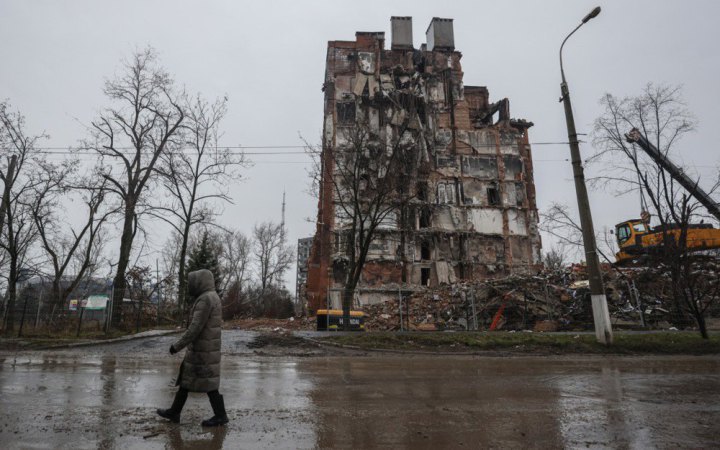Russia deliberately used hunger strike tactics during the 85-day siege of the Ukrainian city of Mariupol in early 2022, which amounted to a war crime.
This conclusion is the basis of a dossier submitted to the International Criminal Court by Global Rights Compliance lawyers working with the Ukrainian government, The Guardian reports.
The Opinion states that Russia and its leaders intended to kill and harm large numbers of civilians.
It is estimated that 22,000 people died during the encirclement and capture of Mariupol at the beginning of the war. A few days after the siege, civilians were left without water, gas and electricity, and the temperature dropped below minus 10C.
How the lawyers collected evidence of Russian crimes
At first, the lawyers were not sure how easy it would be to create a dossier on war crimes in Mariupol, as the Russian occupation made it difficult to collect evidence. However, they developed a methodology that used a specially created algorithm to map the destruction of specific locations, which were tracked by satellite images. Explosives experts have determined that the destruction was caused by Russian attacks.
Katriona Murdoch, partner at Global Rights Compliance, said the aim of the study was to "test whether there was a wider narrative" that the deliberate refusal of the Russian military and its leadership to provide people with food and other services necessary for life was a starvation strategy that could be called a war crime.
"We found that the Russian attack consisted of four stages: starting with attacks on civilian infrastructure and ending with the disconnection of electricity, heating and water. Then, humanitarian evacuations were denied, attempts were even attacked, and aid was not delivered," Murdoch said.
"In the third stage, critical infrastructure was targeted, civilians were terrorised with aid, and water moonlighting was bombed. Finally, in the fourth stage, Russia launched strategic attacks to destroy or seize the remaining infrastructure," she said.
According to the lawyer, the phased shelling of Mariupol demonstrated that Russia planned to capture the frontline city without sparing its civilian population, which by 24 February 2024 amounted to 450,000 people.
The dossier says that approximately 90 per cent of healthcare facilities and homes in the city were destroyed or damaged during the siege, and food distribution points and humanitarian evacuation routes were bombed.
Who is to blame?
The document also states that, given the importance of Mariupol and the centralisation of decision-making in Russia, the responsibility for the deaths of thousands of civilians lies at the very top. "Vladimir Putin and the echelons of the Russian military leadership are to blame," Murdoch added, without naming commanders.
The ICC accepts third-party submissions, although it does not necessarily take action on their basis. Starvation and the denial of amenities essential to civilian life are considered war crimes, but this remains a relatively new area of international law, and no suspected perpetrators have been brought to justice.








